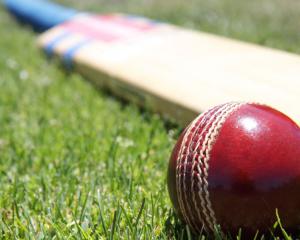
A respected Otago political analyst says while Mr Putin’s threat of nuclear war is a "dangerous moment", it is really nothing more than "sabre-rattling".
Mr Putin approved changes to Russia’s nuclear doctrine this week, so it now says if there is an attack from a non-nuclear state which is backed by a nuclear power, it will be treated as a joint assault on Russia.
The changes to the doctrine follow the United States’ decision to allow Ukraine to fire long-range US-made missiles into Russia.

"It is a dangerous moment, but I think it has a lot to do with Putin’s reading of both the military situation with regard to Russia’s attempted annexation of Ukraine and also domestic politics in the United States.
"Mr Putin has been nuclear sabre-rattling since the eve of his invasion of Ukraine.
"Just before he gave the green light for the so-called ‘special military operation’, which was an attempt at annexation of the whole of Ukraine, he warned of catastrophic consequences for anybody that tried to interfere with Russia’s invasion plans.
"That was a thinly veiled reference to nuclear weapons, and he has repeated that in the course of this conflict at various junctures — particularly when American arms have been provided to Ukraine."
Prof Patman said Mr Putin created the present situation when he brought in foreign troops from North Korea to support his annexation.
From an American point of view, that was an escalation, so it started providing long-range missiles to Ukraine.
"The Russians have said they’re facing a 1962 Cuban Missile Crisis scenario.
"I don’t think we are. I think Mr Putin is raising the stakes.
"But the one thing that is worrying about this is the danger of miscalculation.
"If Mr Putin’s military stance starts experiencing new battlefield reverses, will a desperate Putin resort to nuclear weapons to preserve his regime?

"His decisions may be based on political survival, not national security."
Prof Patman said Mr Putin’s alteration of the doctrine was an attempt to deter support for Ukraine, because some of that support could nullify his advantages on the battlefield.
"He wants to secure the land that he has illegally seized from Ukraine, and he’s genuinely worried about the way the conflict is going, because for the first time, Ukraine now has long-range missiles.
"That’s worrying because there’s a possibility that missiles could be striking Moscow."
He said President-elect Donald Trump’s "circle" was saying US President Joe Biden was running the risk of creating World War 3, which was exactly the message the Kremlin wanted to send to Western society.
"They’re deliberately creating the prospect that if Russia is not allowed to hold on to its illegally gained territory in Ukraine, there could be nuclear war."
However, Prof Patman said that was "nonsense".
"Mr Putin knows better than anyone else that if he used nuclear weapons against Ukraine or any member of the Nato alliance, Russia would be wiped out within a matter of hours, along with everyone else in the northern hemisphere.
"And no-one wants that situation, and he [Putin] wouldn’t gain from it.
"He has bluffed about using nuclear weapons time and time again, and so far, he hasn’t done it."
Prof Patman said once Mr Trump took office, he was likely to impose a Putin-style peace solution, which would allow Mr Putin to keep the territory he had gained if he promised not to go any further.












